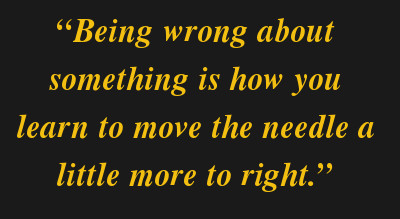We’re always a wee bit suspicious about articles that announce some sort of “World’s first” accomplishment. With a couple of hundred thousand years of history, most of which wasn’t recorded, over which something like 117 billion humans have lived, any claims of primacy have to be taken with a grain of salt. So when the story of the world’s first instance of a car being hit by a meteorite came across our feed, we had to check it out. The car in question, a Tesla, was being driven in South Australia by veterinarian Andrew Melville-Smith when something suddenly crashed into its windshield.
flame war3 Articles
Continuing The Dialog: “It’s Time Software People And Mechanical People Had A Talk”
A while back I wrote a piece titled, “It’s Time the Software People and Mechanical People Sat Down and Had a Talk“. It was mostly a reaction to what I believe to be a growing problem in the hacker community. Bad mechanical designs get passed on by what is essentially digital word of mouth. A sort of mythology grows around these bad designs, and they start to separate from science. Rather than combat this, people tend to defend them much like one would defend a favorite band or a painting. This comes out of various ignorance, which were covered in more detail in the original article.
There was an excellent discussion in the comments, which reaffirmed why I like writing for Hackaday so much. You guys seriously rock. After reading through the comments and thinking about it, some of my views have changed. Some have stayed the same.
It has nothing to do with software guys.
 I definitely made a cognitive error. I think a lot of people who get into hardware hacking from the hobby world have a beginning in software. It makes sense, they’re already reading blogs like this one. Maybe they buy an Arduino and start messing around. It’s not long before they buy a 3D printer, and then naturally want to contribute back.
I definitely made a cognitive error. I think a lot of people who get into hardware hacking from the hobby world have a beginning in software. It makes sense, they’re already reading blogs like this one. Maybe they buy an Arduino and start messing around. It’s not long before they buy a 3D printer, and then naturally want to contribute back.
Since a larger portion of amateur mechanical designers come from software, it would make sense that when I had a bad interaction with someone over a design critique, they would be end up coming at it from a software perspective. So with a sample size too small, that didn’t fully take into account my positive interactions along with the negative ones, I made a false generalization. Sorry. When I sat down to think about it, I could easily have written an article titled, “It’s time the amateur mechanical designers and the professionals had a talk.” with the same point at the end.
Though, the part about hardware costs still applies.
I started out rather aggressively by stating that software people don’t understand the cost of physical things. I would, change that to: “anyone who hasn’t designed a physical product from napkin to market doesn’t understand the cost of things.”
It’s Time The Software People And Mechanical People Sat Down And Had A Talk.
With the advances in rapid prototyping, there’s been a huge influx of people in the physical realm of hacking. While my overall view of this development is positive, I’ve noticed a schism forming in the community. I’m going to have to call a group out. I think it stems from a fundamental refusal of software folks to change their ways of thinking to some of the real aspects of working in the physical realm, so-to-speak. The problem, I think, comes down to three things: dismissal of cost, favoring modularity over understanding, and a resulting insistence that there’s nothing to learn.
Continue reading “It’s Time The Software People And Mechanical People Sat Down And Had A Talk.”












